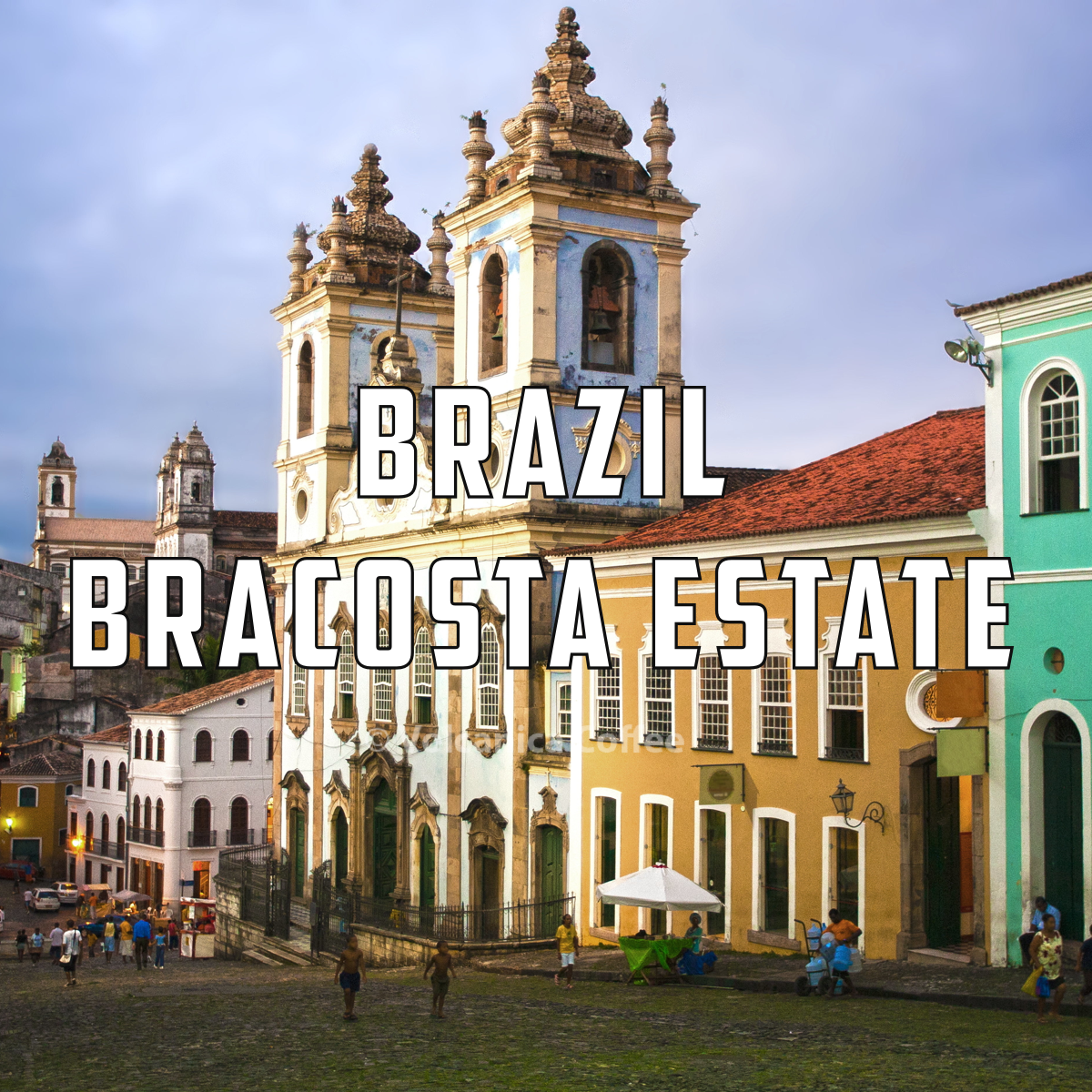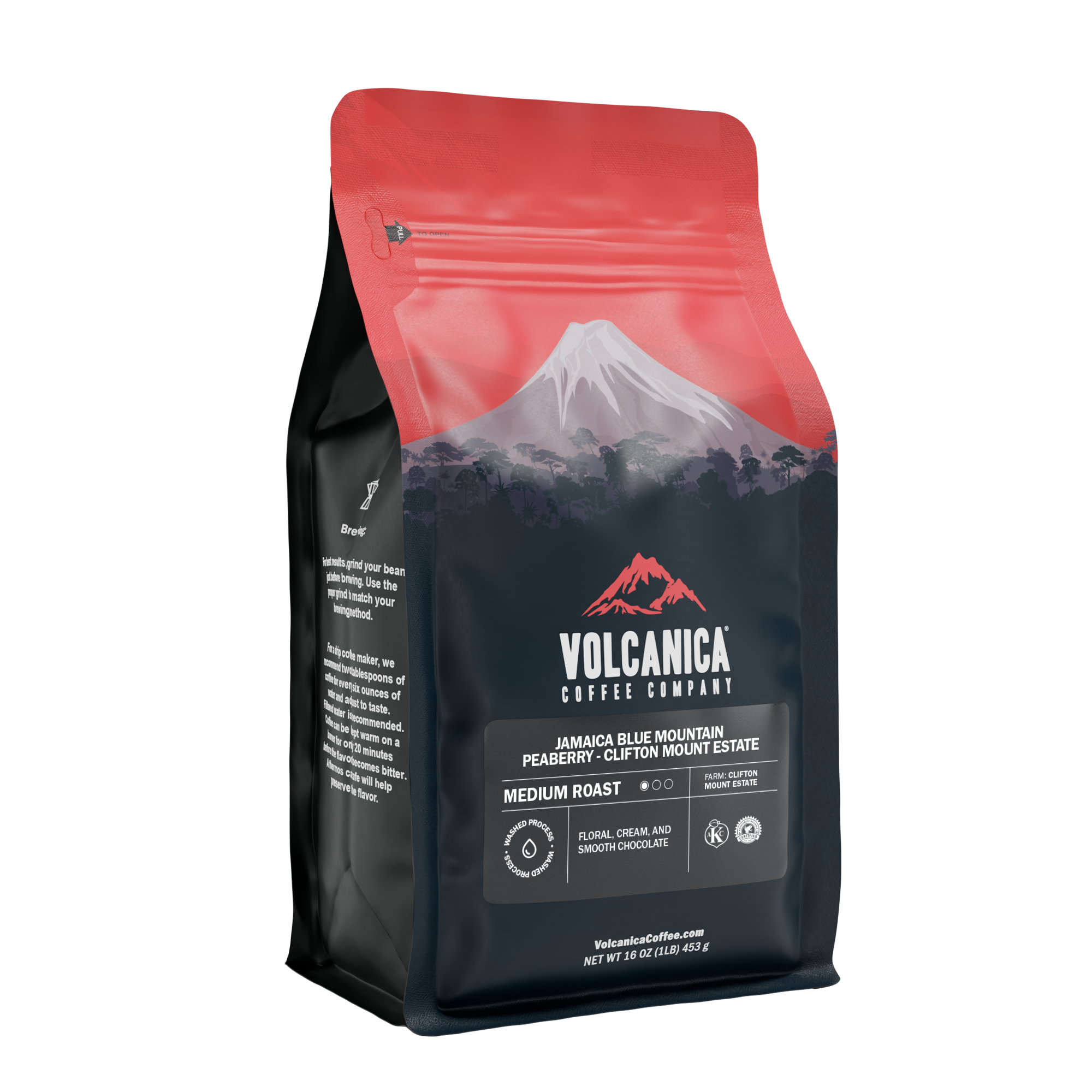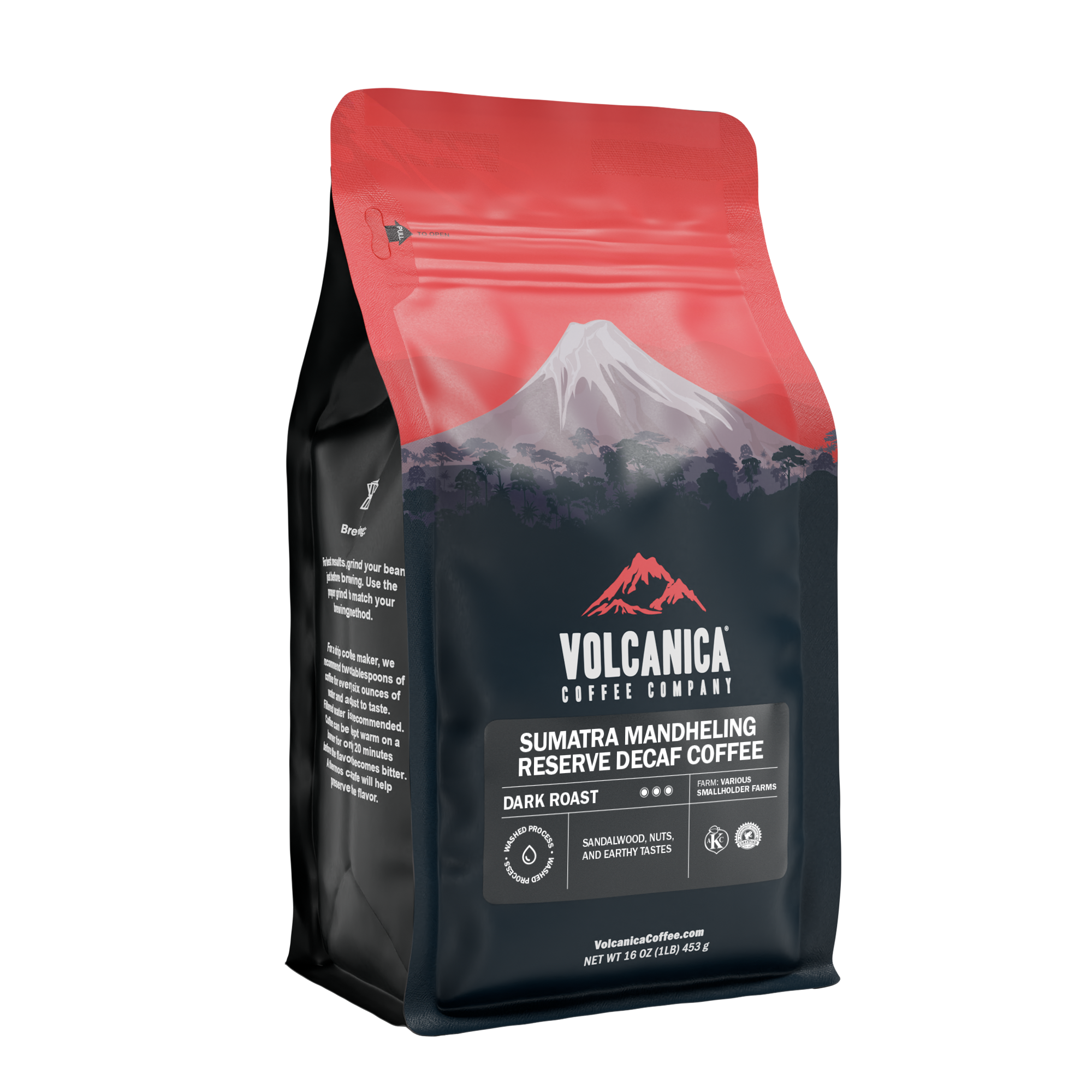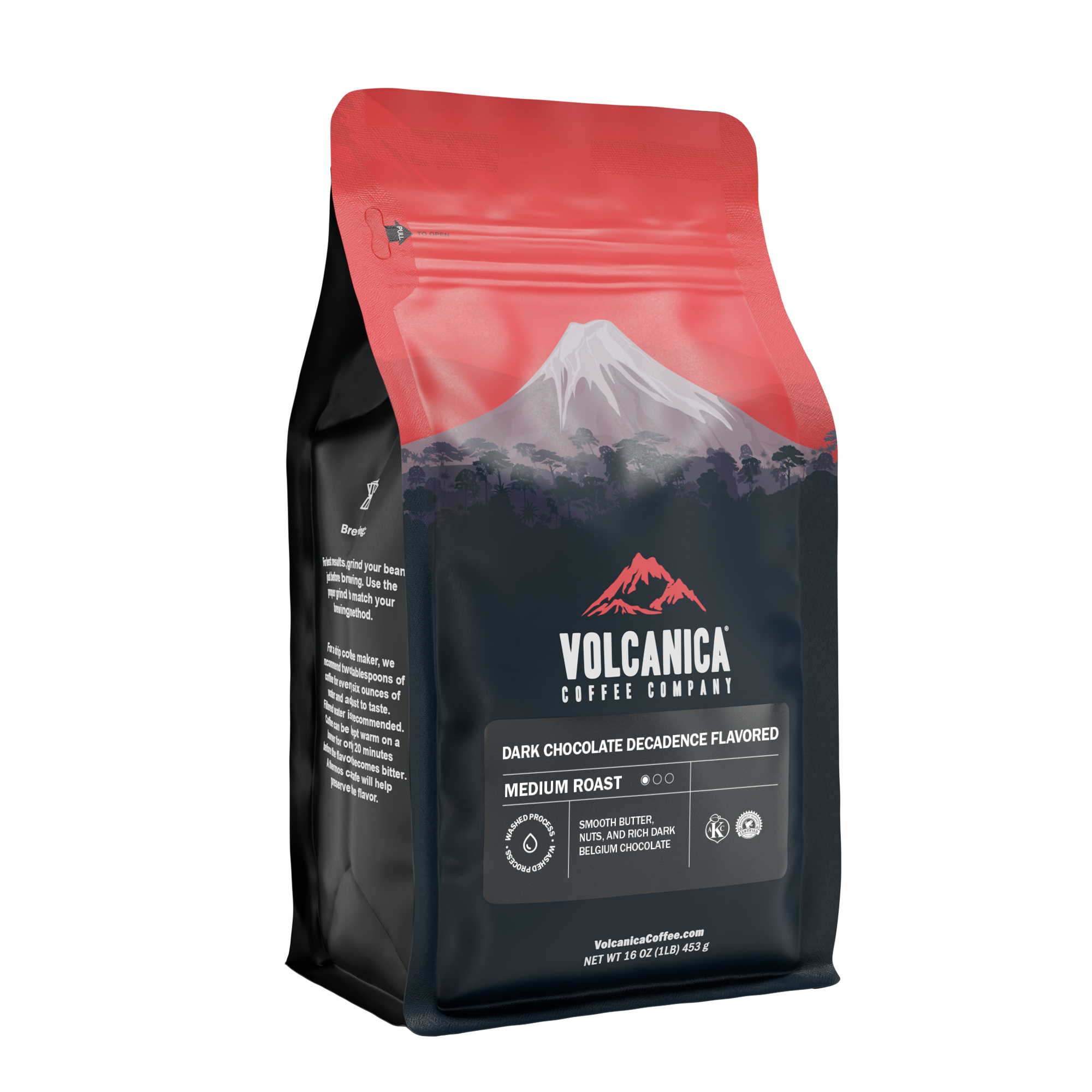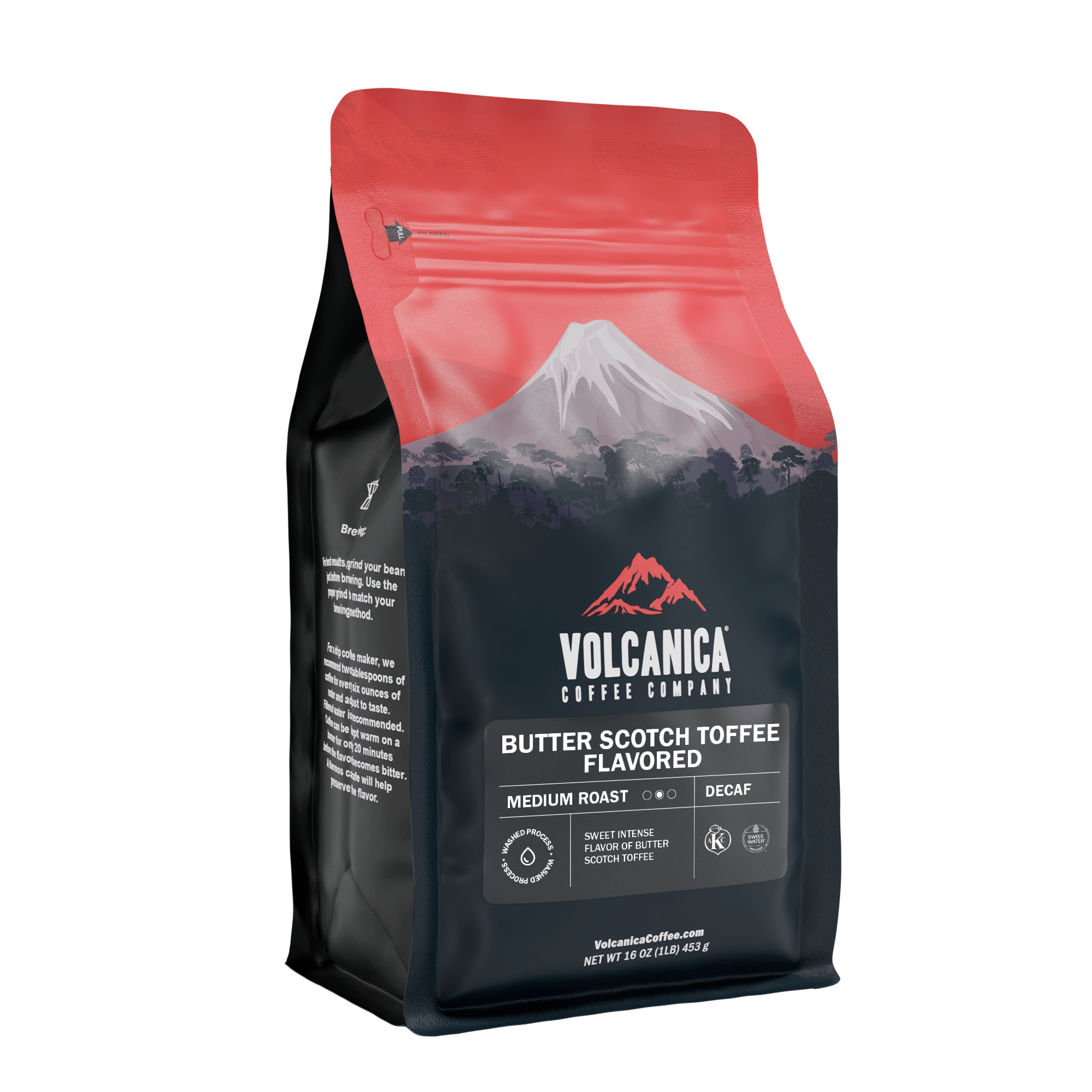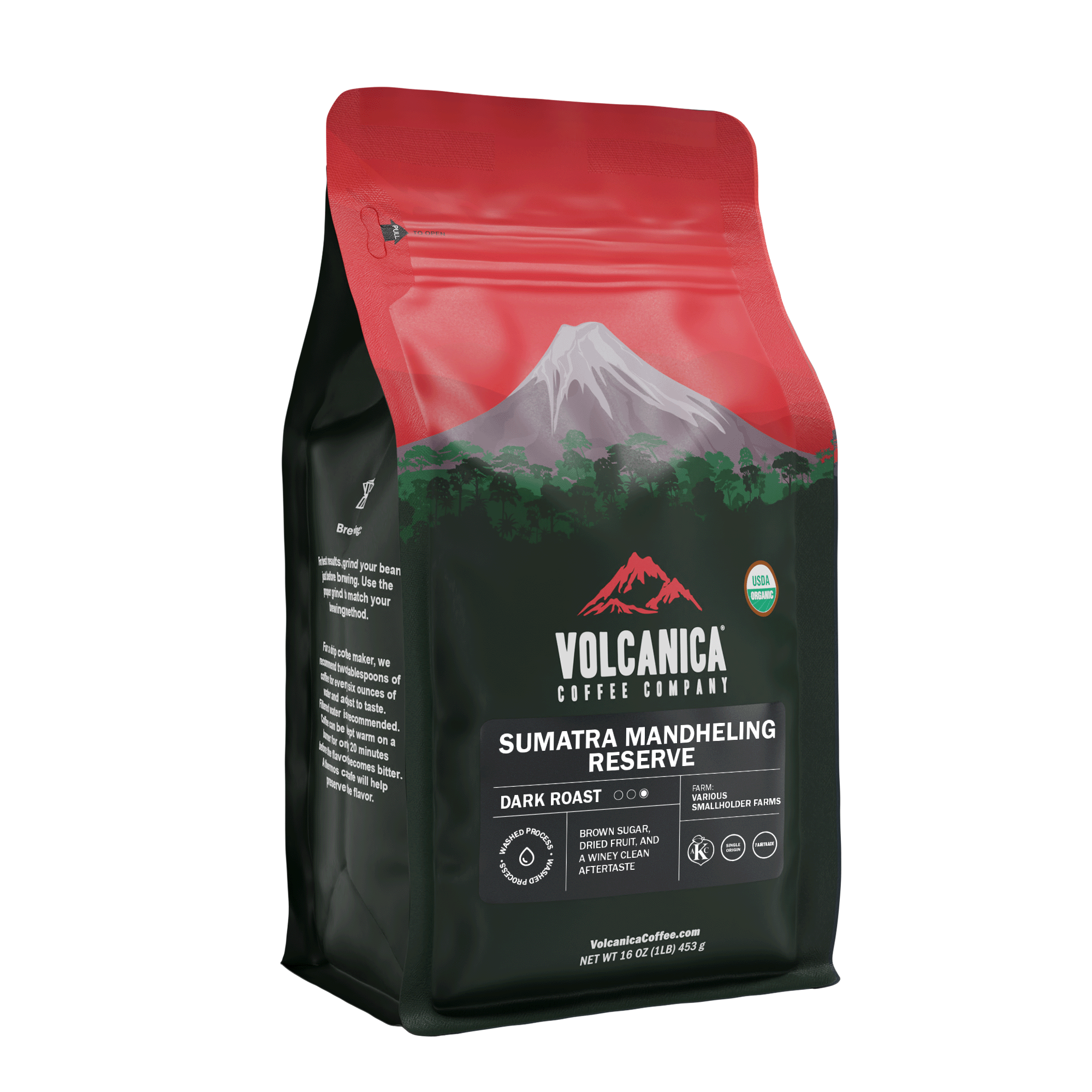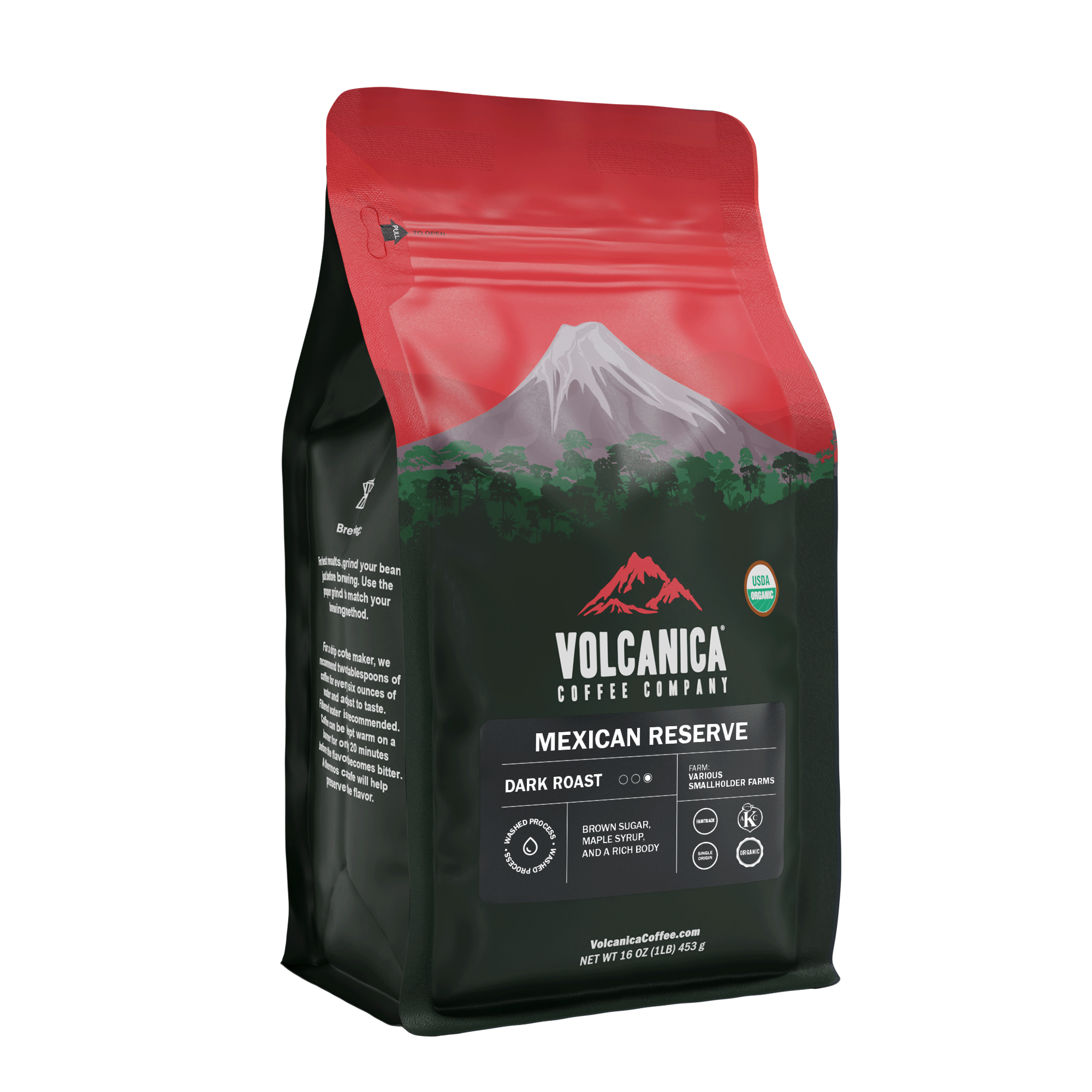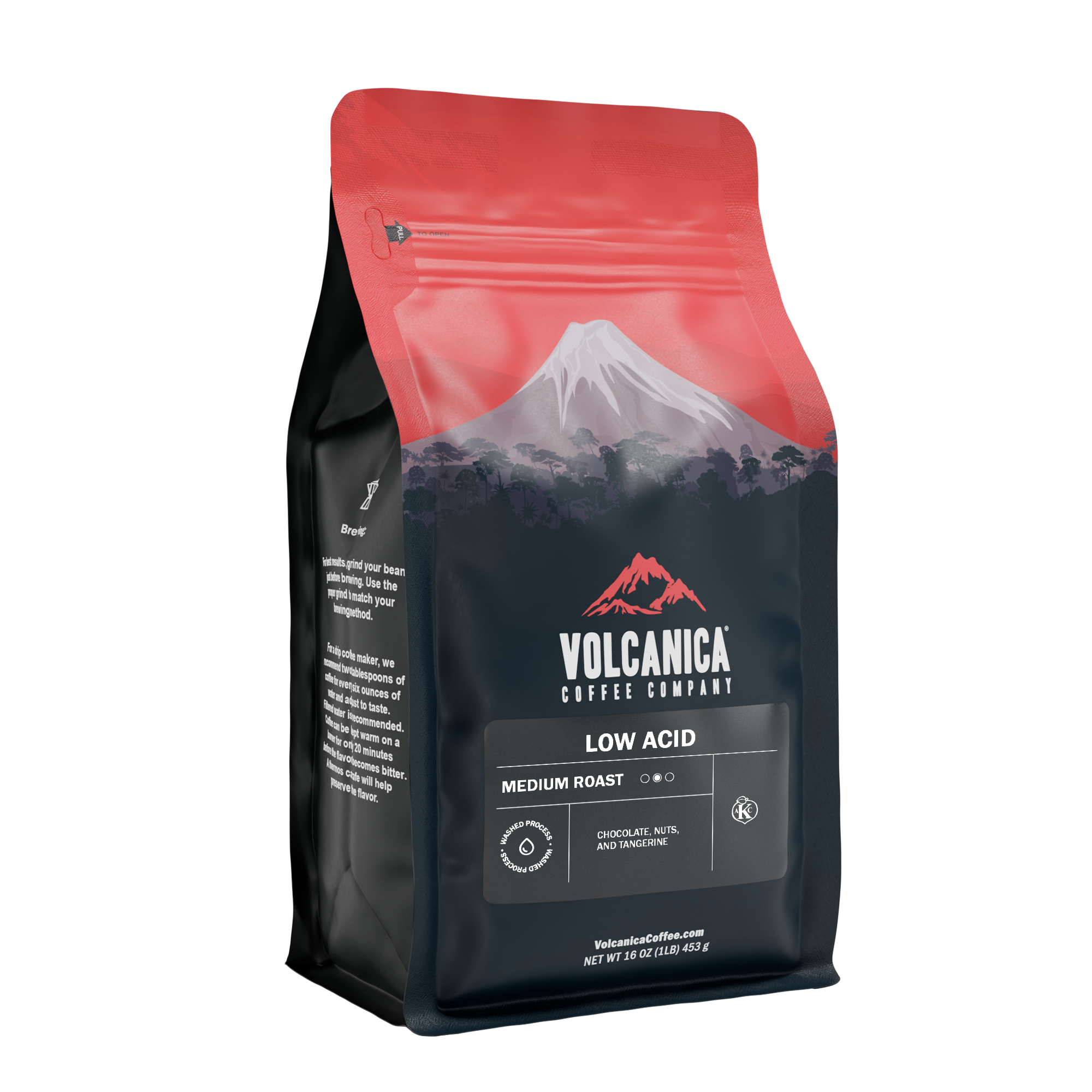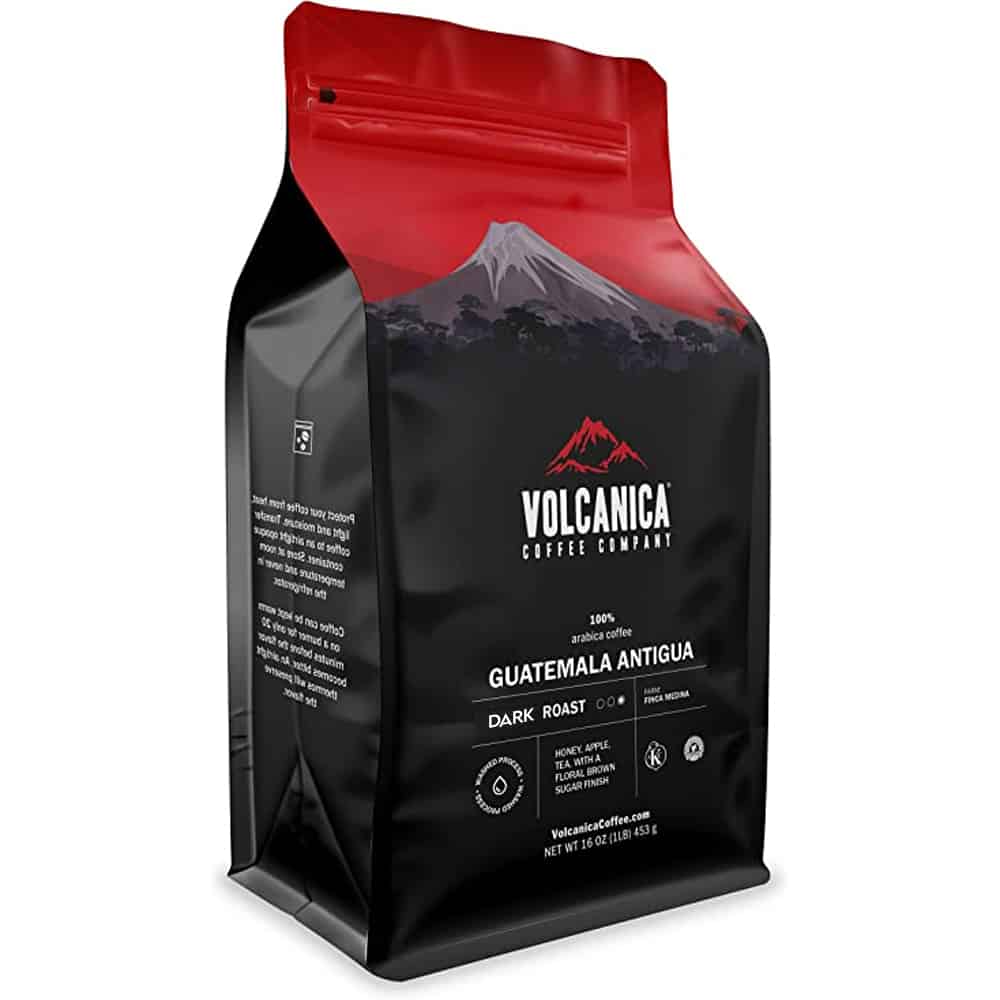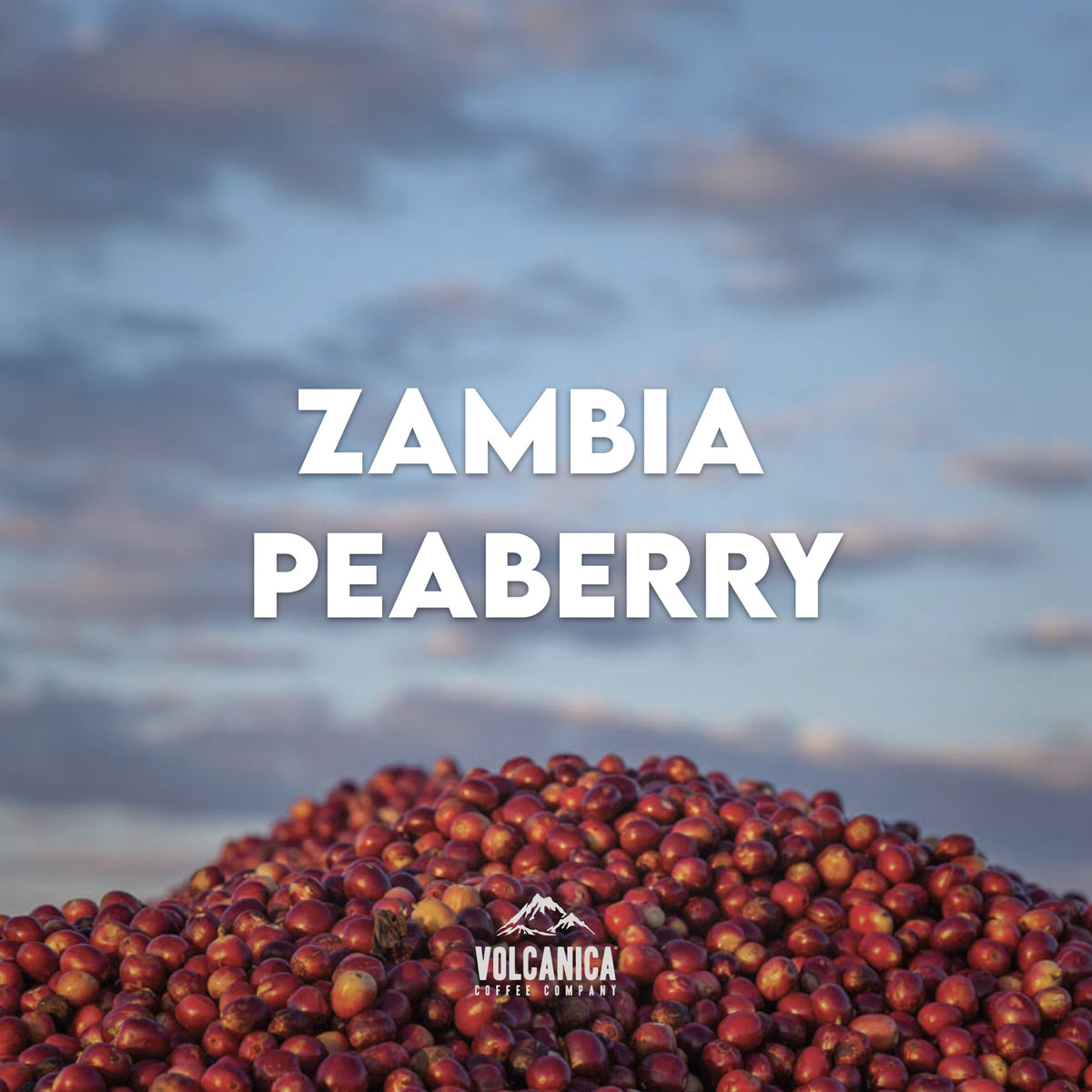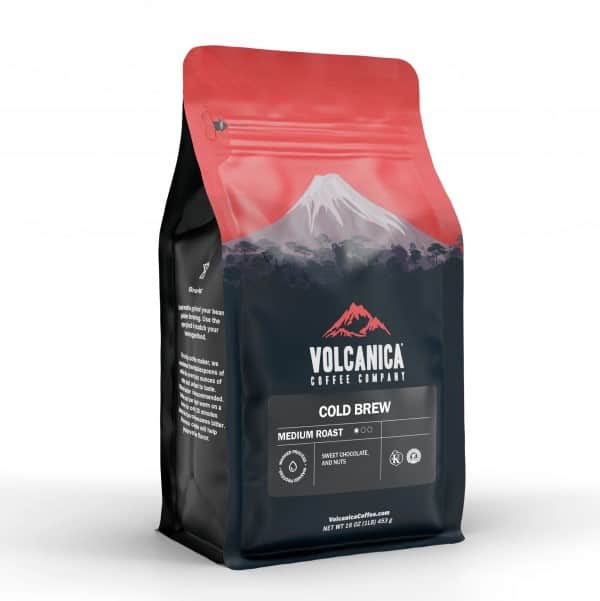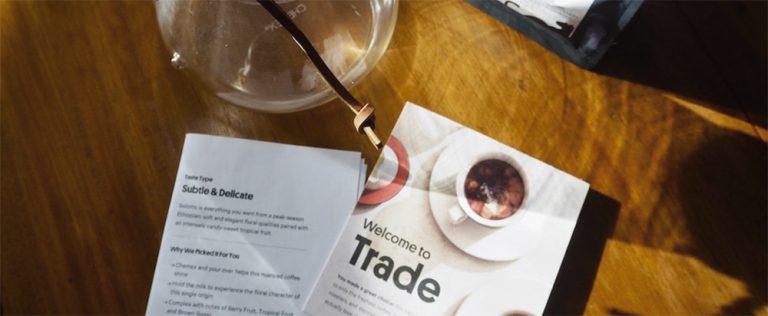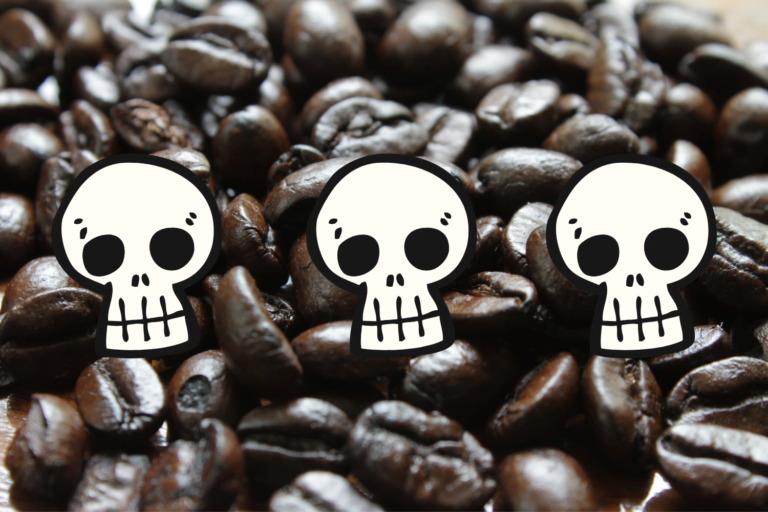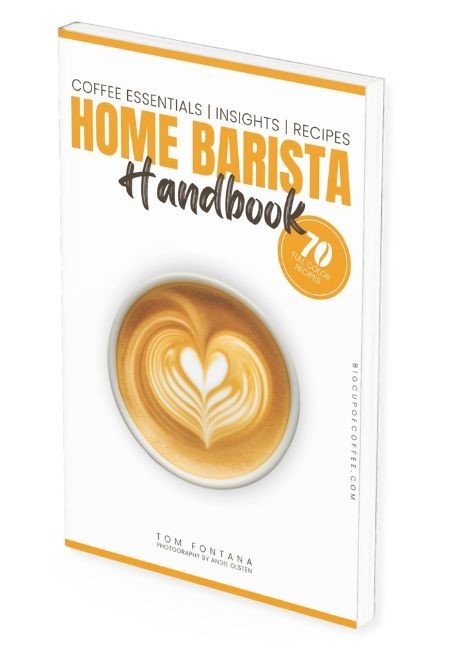Volcanica Coffee: Delicious Coffee Cultivated Sustainably
Are you looking for a delicious roast with distinct taste cultivated in sustainable coffee farms? Do you prefer drinking organic coffee while sampling different roasts? Are you looking for gourmet coffee beans that support a cause? Stop looking, because Volcanica Coffee is it.
The last time I searched on the internet for the “best dark roast coffee”, I was prompted to check out several coffee brands that Google “highly recommends” and noticed Volcanica Coffee mentioned in every listicle on display.
Curious to know more about this coffee with a “fiery” sounding name, I searched every corner of the coffee community to better understand this brand and why so many coffee sites feature them, why they’re so popular on Amazon, and what they’re all about.
Drink up and read our Volcanica coffee review. You can use our table of contents to click on a style you’re looking for so you can easily find the product and its cost on the volcanica website.
About Volcanica Coffee
As intriguing as the coffee’s name, Volcanica Coffee is a high grown, single-origin coffee with the most credible flavors distinct from other coffee brands.
Volcanica coffee beans are produced in volcanic-rich soil at coffee farms with altitudes between 3000 and 7000 feet. This coffee cultivation methodology focuses on single origins by region or location so that each cup of Volcanica coffee has a flavor profile that you can easily differentiate from one another.
Volcanica Coffee is a family-owned company that upholds highly ethical operating procedures and is praised for its excellent customer service. The Contreras family founded this leading gourmet coffee bean company in 2004 with a mission to bring great tasting coffee from Costa Rica directly to the United States.
For a coffee aficionado, the search for delicious gourmet coffee does not simply end in Costa Rica. After years of travel and investigation, Volcanica discovered that exceptional coffee beans like those in Costa Rica can also be found in mountainous regions where the volcanic soil is highly abundant.
The Contreras family established a coffee bean haven in Atlanta, Georgia. They brought over 120 coffees from different regions with the vision of elevating the quality of coffee that Americans consume one cup at a time.
[rwp_box id=”1″]
Company Standards at Volcanica
Volcanica Coffee dedicates itself to producing the most delicious gourmet coffee with its unique roasting and production process, careful choice of coffee beans’ source while supporting ethical and sustainable coffee farm practices.
In this section, we’ll be covering what makes Volcanica Coffee a gourmet coffee company with a purpose.
Roasting and Production Process
Volcanica roasters believe that the secret for a delicious coffee cup starts with the selection of coffee bean origins and meticulous roasting. To ensure that all coffee beans roasted in their state-of-the-art facility in Atlanta, they remain very “hands-on” with the roasting and production processes.
They travel to the coffee farms of their partner producers, visit coffee plantations and interact with local cooperatives to ensure that every single coffee bean in their catalog is treated with the utmost care relative to sustainable farming.
Every Volcanica coffee bean is roasted-to-order in small batches. Right after it is roasted, the beans are immediately packed in foil bags and sealed to maintain freshness and prevent the loss of flavors. So whenever you open a bag of Volcanica coffee, you’ll be welcomed with the flavorful aroma of freshness.
Coffee Origin
Volcanica Coffee prides itself on its unique tasting coffee beans. No wonder, when it comes to sources, they are really picky. The origin of the coffee beans plays an essential role in producing a tasty coffee. Although coffee is cultivated in more than 50 countries around the world, it does not mean that all coffee beans taste the same.
Just like with delicious chocolate or cheese, there are regions in the world that produce them to an exceptional quality. Cheese and chocolate vary in flavor, quality, and texture in the specific areas that give each an identity and impression. Terroir, perhaps? Ultimately, it’s our preferences that will always dictate which variant wins our liking.
So the next time you are looking for a flavor profile that matches your taste bud. You can always go back to this rough guide about coffee beans cultivated in different regions around the world.
Brazilian Coffee
Distinct flavor profile: nutty, rich and chocolatey with slight acidity
Where to find: In the regions of Bahia, Espirito Santo, Minas Gerais, and Parana
Colombian Coffee
Distinct flavor profile: Smooth and chocolaty, bright and fruity
Where to find: In the regions of Antioquia, Boyaca, Caldas, Caqueta, Casanare, Cauca, Cesar, Cundinamarca, Huila, Guajira, Meta, Magdalena, Nariño, Quindio, Norte de Santander, Risaralda, Santander, Tolima and Valle
Costa Rica Coffee
Distinct flavor profile: Clean and light with occasional notes of brown sugary sweetness with citrusy notes and hints of apricot-like flavors.
Where to find: In the regions of Brunca, Central Valley, Guanacaste, Orosi, Tarrazu, tres Rios, Turrialba and West Valley.
Ethiopian Coffee
Distinct flavor profile: bold and sophisticated, bright and fruity (especially Yirgacheffe beans)
Where to find: Ethiopian, Harrar, Sidamo, and Yirgacheffe
Coffee from Hawaii
Distinct flavor profile: Mild and fruity
Where to find: In the regions of Kauai, Kona, Maui, and Molokai
Coffee from India
Distinct flavor profile: smooth, mild and creamy
Where to find: In the regions of Assam, Andhra, Karnataka, Kerala, Orissa, and Tamil Nadu
Indonesian Coffee
Distinct flavor profile: bold and deep-bodied with hints of earthy notes
Where to find: In the islands of Java and Sumatra
Jamaican Coffee
Distinct flavor profile: smooth and mild, bright and vibrant with slight acidity
Where to find: In the estates of Wallenford, Mavis Bank, Moy Hall, and Silver Hill
Kenyan Coffee
Distinct flavor profile: deep and wine-like acidity with hints of berry
Where to find: In the regions of Mt. Kenya, Kiambu, Nakuru, and Machakos
Malawi Coffee
Distinct flavor profile: full body with natural sweetness with hints of chocolate
Where to find: In the regions of Mulanje and Thyolo
Mexican Coffee
Distinct flavor profile: rich and sweet with hints of nuts or caramel
Where to find: In the regions of Chiapas, Veracruz, and Oaxaca
Nepal Coffee
Distinct flavor profile: Creamy body with fruity notes and woody aroma
Where to find: In the region of Nuwakot
Papua New Guinea Coffee
Distinct flavor profile: bright and clean, delicate and sweet
Where to find: In the regions of Vanuatu and Mt. Hagen
Rwandan Coffee
Distinct flavor profile: caramelized sugar with hints of clove, cinnamon, allspice, and floral aromas
Where to find: In the regions of Great Rift Valley
Tanzanian Coffee
Distinct flavor profile: medium to full body with hints of sweet berry-like flavors
Where to find: Kigoma, Iringa, Mbeya, Matengo Highlands, North Kilimanjaro, Morogoro, Mbinga, Usambara Mountain Coffee
Ethics and Sustainability
Volcanica Coffee is known for sourcing coffee beans cultivated on farms that practice sustainable farming. Likewise, they interact with the community and the environment based on their core principles and values.
Considerate towards Farmers and the Planet
Volcanica is a strong supporter of sustainable farming and Fair Trade. Sustainable agriculture or sustainable farming is ecological farming that promotes methods and practices that are economically viable, environmentally conscious, and protects the health of the masses.
This gourmet coffee industry leader is considerate towards coffee farmers and the environment. Contrary to the usual practice of producers that bargain the price of coffee beans, farmers can cut corners to grow beans in full sun. The Volcanica company does the opposite.
The company pays above the average price of coffee beans in exchange for the finest beans. No middleman, just Volcanica and the coffee farmers. They form relationships with the coffee farmers and help them earn a respectable living from cultivating beans that we love in every cup of Volcanica coffee.
Charity 1% Donation Model
Aside from being an environment and fair trade advocate, Volcanica coffee is also a generous family business. The company donates a significant portion of its coffee profits to several charities.
One of their ongoing charity works is their 1$ donation model for every purchase you make on their website. This company supports the charity: water, which aims to help third world developing countries gain access to clean water by funding multiple water system projects, including rainwater harvesting wells, piped water systems, and BioSand Filters.
Last December 2019, Metcalf partnered with Volcanica Coffee to sell a new blend called “Decaf Metcalf.” This partnership aims to donate a part of the proceeds to the Prison Fellowship, a justice-reform advocacy group supporting the incarcerated, former prisoners, and their families.
Family Business
Volcanica Coffee is not just a family business but a simple coffee business that bases their business ethics and interactions with both employees and the community on traditional family values.
Volcanica strongly believes that:
“Christ has blessed us with this business, and we seek to honor Him through our stewardship in business operations.”
Putting their personal beliefs and values into action is what separates Volcanica from other brands. They truly use business for good when they create value not just for themselves but for ALL the stakeholders: from the suppliers to the customers.
Product Offerings
With the mission to provide “remarkable exotic coffee” cultivated from various regions in the world with volcanic soil rich in minerals and nutrients, Volcanica Coffee proudly offers its coffee products from these following regions:
Coffees by Region
Latin American
Volcanica coffee sources from a large network of international coffee farms representing Peru, Mexico, Nicaragua, Brazil, Columbia, Costa Rica, Dominican Republic, El Salvador, and Guatemala.
Jamaican
Volcanica coffee features coffee farms on the estates of Clydesdale, Wallenford, and Clifton Mountain.
African
Volcanica imports from coffee farms in Cameroon, Kenya, Ethiopia, Malawi, and Tanzania.
Indonesian
Volcanica coffee comes from coffee farms in Java, Sumatra, and Sulawesi.
Indian
Volcanica coffee comes from the coffee farms in Malabar.
Hawaiian
Volcanica coffee sources from the coffee farms on the slopes of Mauna Loa and Hualalai.
Estate Coffees
Volcanica Brazil Coffee is an estate coffee from the Minas Gerais region, characterized by its amazing taste with hints of sweetness, chocolate notes, and balanced acidity. This single-origin coffee is Kosher and Rainforest Alliance certified, ensuring quality and sustainability. With a pH of 5.1, it is considered a low acid coffee and undergoes a washed process before being medium roasted.
Flavor notes: with hints of strawberry, starburst, tangy orange, and floral undertones.
Estate coffees are some of the best coffees in the world that originate from a single coffee farm or estate. They produce gourmet coffees that have exceptional taste and quality.
Bracosta Brazilian Coffee
The coffee beans roasted for this estate coffee are cultivated from the Bracosta estate in the regions of Minas Gerais. It is 100% Arabica coffee beans and is medium roasted.
Cup Notes: Sweet-toned with balanced acidity and clean taste.
Flavor Notes: with hints of chocolate notes.
Clydesdale Blue Mountain Coffee
The Blue Mountain Coffee is a premier origin of gourmet coffee beans and is one of the rarest coffees in the world. It is 100% arabica coffee and roasted in medium level to allow its real flavor to emerge when you brew it for a morning joe.
Cup Notes: Blue Mountain coffee is sweet-toned and has a soft and delicate tangy aroma with hints of floral and pungent butter smoothness.
Flavor Notes: Gives a crisp chocolate and orange zest taste, but as the roast cools, a mint-like note is tasted.
Yellow Bourbon Brazilian Coffee
The Yellow Bourbon Brazilian coffee is cultivated from the Fazenda Recreio farm situated in Sao Sebastio da Grama in the regions of Minas Gerais. The coffee beans belong to the rare yellow Bourbon variety of Arabica beans, which is known for its smooth and mellow flavor.
Cup Notes: This coffee is full-bodied, pleasantly mild, and medium in acidity.
Flavor Notes: It has a sweet and mellow flavor with a rich aroma you’ll love in every sip.
Cameroon “Boyo” Coffee
It is an organic coffee grown in nutrient-rich volcanic soil in the Boyo Family Estate with an elevation that exceeds 5,000 feet. Thus each coffee berries attain the optimal sugar content that gives this coffee its signature cup and flavor notes.
Cup notes: Aromatic, mellow, and full-bodied coffee.
Flavor notes: with chocolate notes.
Colombian Supremo Coffee
Colombian Supremo coffee is a medium of roast coffee cultivated in coffee farms that elevated between 1,650 and 1,800 meters. It is a shade-grown coffee in the Andeano Estates that is known for producing excellent gourmet coffee.
Cup notes: have a smooth body and finish with medium acidity.
Flavor notes: sweet with nutty overtones and hints of fruit and floral tones.
Tarrazu Costa Rican Coffee Natural
This medium roast coffee is a naturally processed gourmet coffee from the mountains in Tarrazu, known for cultivating the world’s most excellent coffee. The coffee beans are grown at high altitudes on raised beds of volcanic soil, where the coffee cherries ripen slowly, which results in a coffee bean with rich and hearty flavor.
Cup notes: bright, sweet tones with balanced flavor, medium body, and acidity.
Peaberry Coffees
Jamaican Blue Mountain Peaberry Coffee is highly sought-after, thanks to its rich flavor, intense aroma, and balanced taste. Grown in the ideal conditions of Jamaica's Blue Mountains, this single-origin coffee undergoes a washed process and is medium-roasted to bring out its unique characteristics. Certified by the Jamaica Agricultural Commodities Regulatory Authority (JACRA), this coffee is also Direct Trade and Kosher certified.
If you’re looking for a gourmet coffee with a much richer flavor, you should look for Peaberry Coffees. It grows like a pea, that gives justification for its flat side but has more flavorful taste. These are only 5% of the total crop and must be manually removed from the remaining coffee harvest. Compared to other coffee beans, most coffee experts consider peaberries to have a more delicate quality.
Blue Mountain Peaberry Coffee
The JBM Peaberry Coffee is made from one of the rarest coffee beans in the world with an intense flavor of the Jamaican Blue Mountain. It is cultivated in the mount estates of Clifton.
Cup notes: Smooth and full-bodied, clean and balanced with medium acidity.
Flavor notes: has a refined taste, noticeable sweetness with hints of chocolate, orange, and mint undertones.
Bolivia Peaberry Organic Coffee
This medium roast coffee is 100% Arabica beans produced from high altitudes of mountains rich in volcanic soil. It is organically grown at an elevation over 8,000 feet in the regions of the Carnavari in Bolivia.
Cup notes: delicate but creamy body
Flavor notes: great, sweet-toned taste with hints of creamy hazelnut and cocoa flavor.
Brazil Peaberry Coffee
The Brazil Peaberry Coffee is cultivated from the selected Brazilian coffee farms that are Rainforest Alliance certified. It is a medium roasted coffee famous for its smooth taste and aromatic scent.
Cup notes: creamy body, bold and complex
Flavor notes: nutty, sweet hazelnut with hints of raspberry
Cameroon Peaberry Coffee
It’s a medium roast peaberry coffee that is rich and very aromatic. The chocolatey notes are recognizable with hints of nutty flavor. It has mellow acidity but not that overwhelming. The coffee beans in this variant are cultivated in nutrient-rich volcanic soil in elevated coffee farms exceeding 5000 feet above sea level.
Cup notes: full-bodied with medium acidity, has smooth and clean aftertaste.
Flavor notes: moderately sweet and chocolatey with hints of nutty flavor.
Colombian Peaberry Coffee (Supremo)
The Colombian Peaberry Coffee is a medium roast coffee cultivated in coffee farms volcanic ash soil type. These coffee farms are situated in elevated altitudes between 1,650 and 1,800 feet. This coffee is distinct from other peaberry coffees of Volcanica as it has perfectly balanced notes of fruit, chocolate, and caramel.
Cup notes: Light and smooth with a balanced fruity punch, with sustained sweetness aftertaste.
Flavor notes: moderately sweet, slightly caramelly and chocolatey with hints of fruity flavor.
Costa Rica Peaberry Coffee
The Costa Rican Peaberry Coffee is a medium roast with a sweet, balanced brew with an intense fruity that complies with its subtle sweetness. It is cultivated from the La Isabela Estates situated in the regions of Tres Rios near the Pacific shore.
Cup notes: mild, sweet, and bright with intense flavor.
Flavor notes: with notes of nuts, chocolates, and hints of berry undertones.
Other Peaberry Coffees worth to try from Volcanica Coffee are Sumatra Gayo, Tanzania Peaberry, Yemen Peaberry, Toraja Sulawesi Peaberry, Papua New Guinea Peaberry, Malawi Peaberry, Kenya Peaberry, Guatemalan Peaberry, and El Salvador Peaberry.
You can also purchase this great tasting peaberry coffees in a connoisseur gift box containing any of the four peaberry coffee variants each packed in a 16 oz resealable bag.
Jamaican Blue Mountain Coffee
Cultivated at the renowned Clifton Mount Estate, this bean offers a harmonious blend of flavors with a balanced profile featuring prominent fruit notes and light acidity, all wrapped in a strong and intense aroma. Recognized as one of the world's finest coffees, it is meticulously dried on concrete slabs in the famed Blue Mountains of Jamaica, a region with a rich history of coffee production dating back to the 18th century.
The Jamaican Blue Mountain Coffee is one of the rarest coffee in the world as its supplies are low while the demands are high due to the limited space of cultivating it in the Blue Mountain. The JBM coffee beans are grown at the mountain peak ranges on the island of Jamaica that reaches up to 7,402 feet.
Jamaica Blue Mountain Coffee Blend
This is the only Jamaican Blue Mountain coffee blend approved by the Coffee Industry Board of Jamaica (CIB) for its authentic taste and flavor. It is a blend of 30% pure JBM coffee beans and 70% of meticulously selected mountain-grown coffee beans that are comparable to the unique character of Jamaican Blue Mountain Coffee.
Clifton Blue Mountain Coffee
The Clifton BMC is a medium roast with a strong and intense aroma. It is cultivated in the Clifton Mount Estate, which is one of the oldest coffee plantations in Jamaica that has a history of producing one of the finest gourmet coffee beans in the world.
Cup notes: balanced, medium acidity with prominent fruity flavors
Flavor notes: chocolatey with hints of floral
Wallenford Blue Mountain Coffee
The Wallenford BMC is a flavorful medium roast with intense aroma and balanced taste. It is cultivated in coffee farms located in the mountain peaks that are elevated with an altitude of 2,000 feet above sea level. The coffee beans are washed and sun-dried on concrete slabs.
Cup notes: Soft-bodied, sweet-toned coffee with a very delicate aroma of orange zest, floral notes, and pungent buttery notes.
Flavor notes: has crisp chocolate and orange peel flavor with hints of mint as the brew cools.
Decaf Coffee
A single-origin, decaffeinated coffee from Indonesia that offers a rich, heavy body with low acidity and flavors of sandalwood, nuts, and earthy tastes.
It is processed using the Swiss Water Process for decaffeination and sun-drying, ensuring a 99.9% caffeine-free product without chemical solvents and a low acidity level of 5.3 pH.
Volcanica coffee uses the Swiss Water Process to decaffeinate their coffee beans. Below is the list of decaf coffee available:
Brazil Bracosta Estate Decaf
It is a medium roast with balanced acidity and pleasant clean taste. It has a sweet-toned flavor with hints of chocolate notes. This coffee is cultivated from the Bracosta Estates in the Minas Gerais region.
Colombian Decaf Coffee
The Colombian Decaf Coffee is a medium roast coffee that is shade-grown. It is a single-origin coffee cultivated in the high altitudes of the Colombian Andes. This decaf coffee has a smooth, rich to medium body and a pleasant acidity with a smooth finish. It has recognizable nutty overtones.
Costa Rican Decaf Coffee
The Costa Rican Decaf Coffee is an excellent single-origin coffee produced from the Tarrazu mountains under cold temperatures. This decaf coffee is full-bodied with a vibrant finish. It has a smooth, well-balanced flavor with hints of chocolatey flavor.
Espresso Decaf Coffee
Espresso Decaf Coffee is a dark roast coffee that is low in acidity. It’s a perfectly balanced espresso with dense caramel sweet tones. It has a complex spicy aroma that engages your senses. It’s a good coffee if you want to stay energized without hurting from the caffeine kick.
Ethiopian-Yirgacheffe Decaf Coffee
The Volcanica Ethiopian Yirgacheffe Coffee is harvested from wild coffee trees that provide a truly exotic flavor. It is organically grown from a complex coffee origin with pleasantness in acidity. The coffee beans cultivated from the Yirgacheffe region have a distinctive floral and fruity tone. It is medium-bodied with hints of cinnamon and strawberry.
French Roast Decaf Coffee
If you’re looking for the darkest roast but decaffeinated, the Volcanica French Decaf Coffee is a must-try. The unique blend in this decaf variant accentuates the intensity of dark roast coffees. It has a complex and rich body with smoky overtones. It’s a deep and smoky joe you’ll want every morning without the caffeine knocking you out.
Decaf Metcalf Coffee
The Decaf Metcalf Coffee is a specialty blend of decaffeinated beans produced from the coffee farms in Guatemala and Papua New Guinea. It has a rich, full body with recognizable sweet but bold flavor. This exquisite blend is inspired by the Monday Night Football game where the play-by-play broadcaster Joe Tessitore mistakenly called D.K. Metcalf as “Decaf Metcalf.” Since then, it became a favorite meme among netizens about the super-rookie.
Sumatra Mandheling Decaf Coffee
The Sumatra Mandheling is a dark roast, decaffeinated coffee coming from a single origin. The rare Indonesian coffee beans roasted for this decaf variant is smooth with a rich, heavy body. This low acidity decaf coffee has an intense syrupy taste coupled with exotic and earthy flavors.
Flavored Coffees
Volcanica's Dark Chocolate Decadence Flavored Coffee is a medium roast coffee that features the flavors of smooth butter, nuts, and rich dark Belgium chocolate. The coffee beans undergo a washed process before being roasted, ensuring a clean and distinct flavor profile. This coffee is certified Kosher, making it suitable for those following Jewish dietary laws.
If you’re looking for an indulging caramel-chocolate coffee drink, better add-to-cart the Volcanica Coffee’s flavored coffee. It is a medium roasted flavored coffee with the richness of chocolate and the smoothness of caramel – you’ll think it’s melting in your mouth every time you sip!
Decaf Flavored Coffee
Volcanica's Butterscotch Toffee Flavored Decaf Coffee offers a guilt-free indulgence with its sweet and intense butterscotch toffee flavor. This medium roast coffee undergoes a 100% chemical-free Swiss Water Process to remove 99.9% of the caffeine while preserving the unique origin characteristics and flavor. The coffee is also Kosher certified and processed using the washed method.
Volcanica Coffee offers a guilt-free gourmet coffee as it is made from all-natural ingredients. It has no sugar, no allergens, and no calories. The coffee beans used for these delicious flavored roasts are decaffeinated using the Swiss Water Method that removes 97~99% of the caffeine in the beans.
Two of their best sellers to try are the Creme Brulee Decaf Coffee, and the Pumpkin Spice Flavored Coffee as both flavored coffee is as mouth-watering as the original sweet treats we love.
Dark Roast Coffee
Sumatran Dark Roast Coffee - Mandheling Reserve, a dark-roasted Indonesian coffee, is celebrated for its smooth, heavy body, low acidity, and rich, exotic flavor with an intense, syrupy aftertaste with low acidity.
This coffee is distinguished by its unique processing methods in Sumatra and a longer roasting profile to enhance its natural flavors, such as brown sugar, dried fruit, and a winey aftertaste. It is also USDA Organic, Fair Trade, and Kosher.
Volcanica Coffee offers 8 dark roast coffee with rich and robust taste good for the morning kick you need every day. Some of the best dark roast coffees are listed below:
Tarrazu Costa Rican Coffee
The Tarrazu Costa Rican Coffee is a dark roast coffee blend of the finest beans produced in the Tarrazu region. This shade-grown coffee has a light, clean flavor with an aromatic coffee scent. It’s a dark and bold roast with medium acidity. Every cup enables you to enjoy that fresh and toasty Tarrazu coffee with hints of apples.
Espresso Dark Roast
If you want to go darker with your French roast, the Espresso Dark Roast is a perfect blend to brew. This well-balanced dark roast has a dense caramel sweetness and light acidity. It’s pure indulgence in a cup as its complex spicy aroma can make your mornings the greatest.
Sumatra Mandheling Coffee Reserve
The Sumatra Mandheling Coffee Reserve is another dark roast coffee worthy of a space in your cupboard with its rare Indonesian coffee bean’s potent taste. It has a rich, heavy body with an intense syrupy aftertaste. The coffee beans roasted for this variant is low in acidity and offers an exotic, earthy richness in every cup with hints of brown sugar and winey dried fruit.
Guatemala Antigua Reserve Coffee
The Guatemala Antigua Reserve Coffee is a dark roast coffee produced from the estates of Santa Barbara. It has a rich and creamy full body with vibrant acidity. Every cup of this reserve dark roast gives you an intense aroma and a sophisticated flavor with hints of nuts and chocolate.
Organic Coffee
Volcanica's Mexican Organic Dark Roast Coffee is a low-acid, well-balanced coffee from the Chiapas region of Mexico. Characterized by its sweet, smooth body, earthy cocoa tones, and hints of freshly roasted sweet hazelnuts, this coffee is sourced from the El Triunfo Biosphere Reserve, a protected natural area known for its rich biodiversity. The coffee is USDA Organic, Fair Trade, and Kosher certified, and undergoes a washed process before being dark roasted.
Organic coffee is produced without the application of synthetic fertilizers or chemicals to increase yield. Organic coffee farms use the coffee pulp, chicken manure, or compost in growing the coffee plants, which has less impact on the surrounding because of its low carbon imprint. And this makes a lot of difference when you compare the taste of organic coffee to conventional coffee.
If you prefer drinking organic coffee, see our list of organic Volcanica Coffee below:
Cameroon Coffee
Cameroon Coffee is a medium roasted coffee organically grown in the volcanic soil of the Boyo Family Estate. It has a soft, full body with hints of chocolate notes.
Dominican Coffee
The Dominican Coffee is an organically grown medium roast from the estates of Ramirez in the Jarabacoa regions. It has a creamy and thick body but low in acidity. This honey processed coffee has flavor notes comparable to chocolate, almond with hints of tobacco earthiness.
Ethiopian-Guji Coffee
It is an organic coffee produced from the Kayon Mountain Coffee Farm in the Guji zone of the Shakiso district in Ethiopia. This shade-grown coffee has a balanced, smooth mouthfeel and an aftertaste of a winey berry and delicate floral flavors. It is delicately sweet with hints of blackberry, almond butter, and roasted cacao nibs.
Mexican Coffee
It is a dark roast coffee characterized by its low acidity, sweet smooth body, earthy cocoa tones, and hints of freshly roasted sweet hazelnuts.sweet and smooth body, medium acidity, and flavors with hints of freshly roasted hazelnuts.
Low-Acid Coffee
Volcanica Low Acid Coffee is a blend of natural low acidic Arabica beans grown at lower altitudes, primarily from Brazil and Sumatra. This medium roast coffee undergoes a washed process and has flavor notes of chocolate, nuts, and tangerine. With a pH of 5.3, it is an excellent choice for those with acid-related sensitivity, offering a delicious and satisfying cup of coffee that is easy on the stomach.
Volcanica coffee also offers coffee that is naturally low in acid. These are produced from coffee farms in lower elevations. Some of the coffee listed are individually selected and formulated to meet the low acid criteria that every coffee drinker looks for. These low-acid coffee include the following:
Geisha Coffee Costa Rica
The Geisha Coffee originated from a town in Ethiopia that cultivates coffee plants that are resistant to some diseases. The coffee beans appear long and slender and have about 30% less caffeine compared to other coffees. It is medium roasted and has a medium body with a silky mouthfeel. It has a gentle acidity, a lingering finish with hints of cocoa flavor.
Indian Monsoon Coffee
It has a medium body and a medium acidity with pleasant undertones. It is exceptionally smooth with hints of wooden taste and tobacco notes. It is often named as the Monsooned Malabar AA for its unique color, shape, and bean size due to the special post-harvest processing used.
Komodo Dragon Coffee
This low acid coffee has sweet chocolate, floral and woody notes but very earthy and smooth. It is semi-washed, partially fermented, and dried on raised African beds that do not touch soil but are air-dried. The method used in producing a tasty Komodo Dragon coffee results in a heavy body but low in acidity.
Other Volcanica coffees that are low in acidity to try are: Espresso Dark Roast, Espresso Decaf Coffee, Malawi Coffee, Malawi Peaberry Coffee, Papua New Guinea Coffee, Peru Coffee, Sumatra Gayo Peaberry, and Sumatra Mandheling (including the Decaf and Reserve variant).
Fair Trade Coffee
This Ethiopian Yirgacheffe, known for its complex origin and exotic flavor profile, is a USDA organic coffee with pleasant acidity. This is how Ethiopian coffee should be. Hailing from the Gedeo Zone in southern Ethiopia, it's a single origin coffee grown at an altitude of 2000 meters, offering distinct floral and fruity notes like lemon, blueberry, and blackberry.
Some of the most excellent coffee that Volcanica coffee offers meet the Fairtrade Standards. Fair Trade Coffees strictly follow the Fairtrade standards designed to support the farmers and their communities to protect the environment. The coffee farmers are given a guarantee that they’ll receive a minimum price, which acts as a safety net in case of the coffee price drops.
Some of the listed Fair Trade coffee Volcanica offers are:
- Colombian Supremo Coffee
- Costa Rica Coffee
- Costa Rican Coffee Tarrazu
- Papua New Guinea Coffee
- Guatemala Organic Coffee
- Ethiopian Yirgacheffe
Rainforest Alliance Certified Coffees
This Dark Roast is a USDA Organic certified coffee from the Medina Estate, offering a rich and full-bodied flavor with notes of deep caramel, earthiness, and smoke. This low-acid coffee is processed using a washed method and sun-dried, emphasizing its intense dark roasted aroma.
Grown in the World Heritage Site of Antigua, Guatemala, the coffee benefits from nutrient-rich volcanic soil and optimal rainfall, contributing to its unique taste profile.
Rainforest Alliance Certification is awarded to coffee farms that meet the Rainforest Alliance Sustainable Agriculture Standards intended to protect the environment, the rights of the coffee farmers, and aid farms in mitigating and adapting to the climate crisis.
Below are the Volcanica coffee produced from coffee farms that are identified as Rainforest Alliance.
- Bolivia Peaberry Coffee
- Brazil Peaberry Coffee
- Guatemala Antigua Coffee
- Guatemala Antigua Reserve Coffee
Shade Grown Coffee
The Zambia Peaberry from Mafinga Hills is a unique, washed coffee made from Castillo variety beans, showcasing a bright and clean flavor profile with notes of cherry, lime, almond, lemon candy, and raspberry. This Rainforest Alliance-certified coffee is a result of an anomaly in which the coffee cherry produces a single, round seed, resulting in a concentrated and intense flavor. The Zambia Peaberry coffee is a medium-light roast that offers a sweet and well-balanced cup, perfect for those who appreciate a bright and fruity coffee experience.
Shade Grown Coffee is coffee plants that thrive naturally and as a part of a healthy ecosystem surrounded by other plants and wildlife species. Coffee plants love shades as it helps them to yield better coffee beans with superior flavor.
Traditionally, Arabica coffee beans are shade-grown, and Volcanica coffee uses 100% arabica to most of their coffee, including the following variants below:
Colombian Decaf Coffee
The Colombian Decaf Coffee is a medium roast coffee that is shade-grown. It is a single-origin coffee cultivated in the high altitudes of the Colombian Andes. This decaf coffee has a smooth, rich to medium body and a pleasant acidity with a smooth finish. It has recognizable nutty overtones.
Nicaragua Coffee
The Nicaraguan Matagalpa coffee is a classic coffee of a single origin produced in the estates of Selva Negra Coffee Estate. It has a medium to full body and a balanced aroma combined with mild tanginess and mild toasty sweet tones. Its acidity is well balanced, softly sweet, but a bit brisk. In every cup, you’ll enjoy the chocolatey flavor with hints of plum, lemon, and honey undertones.
Toraja Sulawesi Coffee
The “White Eagle” coffee is a medium roast coffee with a smooth flavor, a balanced acidity, and a sweet aftertaste. This is considered as the Crown Jewel of all Toraja Arabica coffees and is grown fully shaded by the virgin jungle in the Sulawesi islands.
Cold Brew Coffees
This special medium roast blend by Volcanica is designed for cold brew enthusiasts, combining bold Sumatra with low-acid Arabica coffee. With flavor notes of sweet chocolate and nuts, it is processed using a washed method and is Kosher Certified.
It boasts a low acidity, achieved by roasting beans naturally lower in acid for longer durations, resulting in a higher pH and smoother taste.
Cold brew coffee is new in the market. It is a coffee brewed at room temperature or with cold water for over 12 to 24 hours of brew time. Since the coffee is brewed with more chilled water, it’s a bit mellower and tastes more rounded than other coffee. So you can expect a full body coffee with a little less acidity.
Volcania Coffee offers its cold brew version with smooth and non-bitter coffee. It has less acid and less caffeine that makes its gourmet coffee different from the usual taste profile. The Cold Brew Coffee of Volcanica contains the bold Sumatra blend and the low-acid Arabica coffee. It can be brewed for 12 hours in the refrigerator and served with ice.
Volcanica Coffee Conclusion
Volcanica Coffee is a one-stop coffee company that gives you a chance to try practically-cultivated coffee from farms rich in volcanic soil.
This value-based company offers an extensive collection of gourmet coffee that guarantees premium quality, excellent tasting profile, and lasting flavor notes. The coffee is organically produced and shade-grown, so you’re safe from chemicals. Likewise, if you’re looking for decaffeinated coffee, The Volcanica decaf is a healthier choice as it uses the Swiss Water Method in its decaffeination process.
This coffee company gets its coffee beans from Fairtrade and Rainforest Alliance certified coffee farms so for every purchase you make with Volcanica Coffee, you’re contributing to the charities they support.
From the Volcanica coffee listed from our review, have you tried any of the coffee blends they offer? What’s your tasting experience with their gourmet and decaf coffee? Kindly share your Volcanica coffee thoughts in the comment box below.


